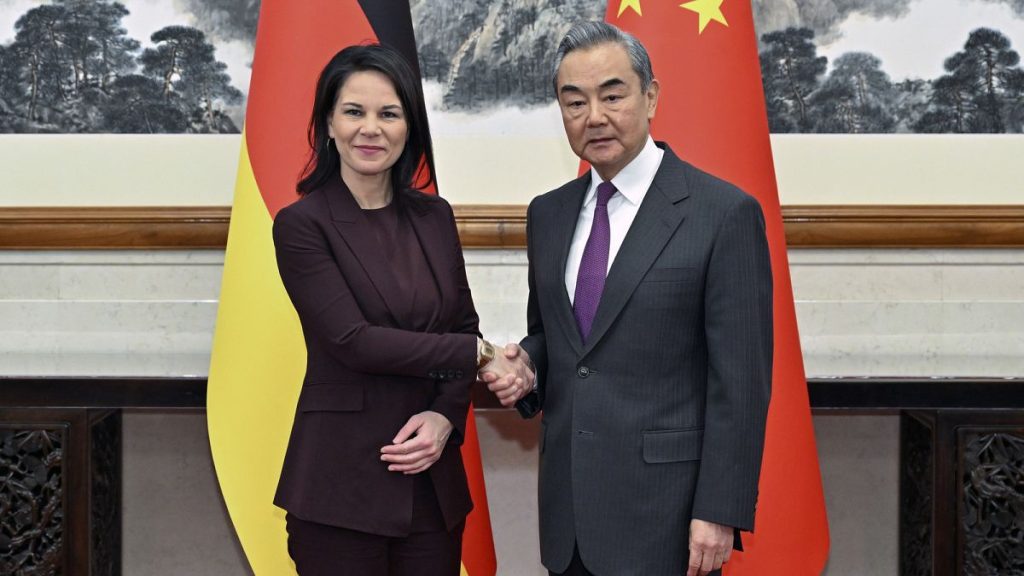Annalena Baerbock, the German Foreign Minister, recently concluded a visit to Beijing, a trip marked by palpable tensions despite the absence of any dramatic expulsion as falsely claimed in a manipulated video circulating online. The video, purporting to show Baerbock being ejected from a press conference, is actually footage from her previous visit in April 2023, when then-Foreign Minister Qin Gang concluded the press conference in a standard manner. Contrary to the video’s narrative, there is no evidence to suggest Baerbock was thrown out of any meetings during her recent visit. The manipulated video, spread across various social media platforms in multiple languages, highlights the potential for misinformation to distort diplomatic events and escalate perceived tensions.
While no expulsion occurred, the atmosphere surrounding Baerbock’s meeting with current Foreign Minister Wang Yi was undeniably strained. The core issues driving the tension revolved around China’s stance on the war in Ukraine, its alleged support for Russia, and its impact on European security and economic interests. Baerbock explicitly criticized China’s perceived support for Russia, warning that such actions could damage its relationships with both Berlin and the broader European Union. She specifically highlighted concerns regarding reports of Chinese factories producing drones for Russia, a move she characterized as a direct threat to core European security interests.
The drone issue, initially reported by Reuters, has raised significant alarm within the European Union. Evidence suggests Russia has established a drone production facility within China, raising questions about the lethality of these drones, their potential deployment in Ukraine, and the extent of China’s awareness of these activities. The EU is actively investigating these concerns, seeking to confirm the nature of the drones and their potential impact on the ongoing conflict.
Further adding to the tension was Baerbock’s critique of China’s electric car market, which she described as “highly subsidized.” This practice, she argued, puts European and, particularly, German automakers at a significant disadvantage. The issue underscores the complex economic dynamics between the two nations, with competition in strategic industries like electric vehicles becoming a focal point of contention.
Baerbock’s visit thus highlights the multifaceted challenges characterizing the current state of Sino-European relations. The tensions extend beyond geopolitical concerns related to the war in Ukraine to encompass critical economic issues, including fair competition and market access. The manipulated video, while demonstrably false, serves as a reminder of the potential for misinformation to further complicate an already delicate diplomatic landscape.
The incident underscores the importance of verifying information, especially in the context of international relations, where misinterpretations or deliberate distortions can have significant consequences. The rapid spread of the manipulated video across multiple platforms and languages demonstrates the ease with which misinformation can proliferate and influence public perception. This incident reinforces the need for critical thinking and reliance on credible sources to navigate the complexities of the information age. It also highlights the challenges faced by diplomats in managing relations amidst an increasingly complex and rapidly evolving information environment.
Finally, the situation illustrates the growing importance of open and direct communication between nations, especially when dealing with sensitive issues that can easily be misconstrued or manipulated. The tensions evident in Baerbock’s visit underscore the need for continued dialogue and engagement between China and Europe to address their concerns and prevent further escalation of disagreements. While disagreements and tensions are inevitable in international relations, addressing them through diplomatic channels and factual information is crucial for maintaining stability and fostering constructive relationships. The incident serves as a stark reminder of the fragility of international relations and the crucial role of accurate information in navigating these complex dynamics.

